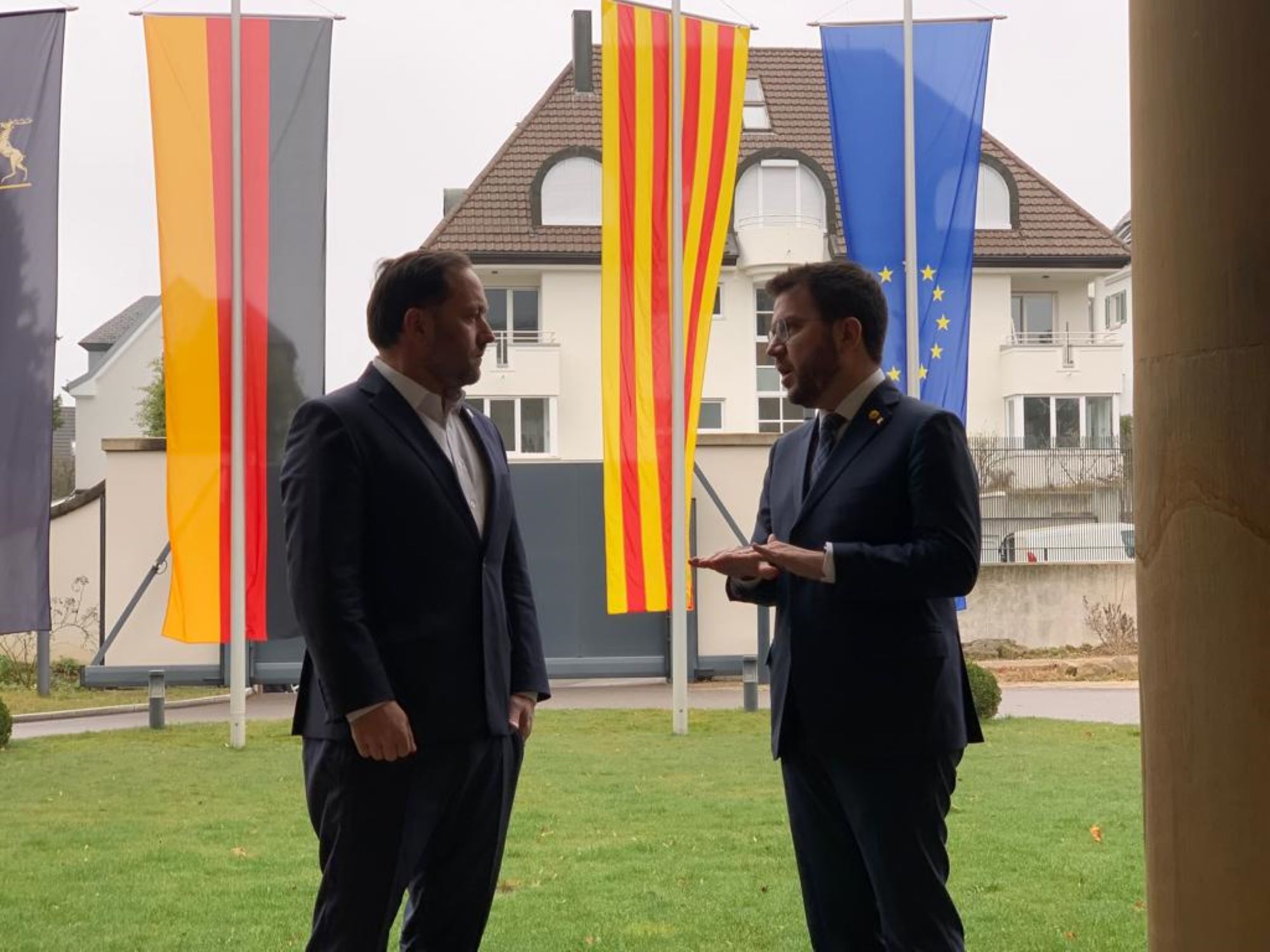The war in Ukraine and the dependence on Russian gas have made the promotion of the MidCat, the gas connection between Catalonia and Europe, a priority. The Catalan president, Pere Aragonès, who today began a two-day trip to Germany, has warned in a meeting with the president of Baden-Württemberg, Winfried Kretschmann, that developing the MidCat, currently for gas and later for green hydrogen, has become a "strategic issue." In this context, the Generalitat of Catalonia and the government of the German land have agreed to set up a joint working group on green hydrogen.
Construction of the MidCat began in 2010, but was frozen in 2019 at Hostalric, south of Girona, due to disinterest in this infrastructure in France, which has a guaranteed supply of energy thanks to its nuclear power plants. The potential of MidCat, however, has been revived with the invasion of Ukraine. The Spanish government has shown interest in the issue, which was mentioned by Spanish prime minister Pedro Sanchez during the Versailles summit, but France's position remains the same.
"Europe will have to undertake an energy transition. In this transition it is important that we maximize profitability and reduce energy production costs," said Aragonès, who recalled that although green hydrogen has, up till now, been a high-cost energy source in contrast to natural gas, the situation has changed significantly with the increase in prices caused by the Russian invasion and the new energy context in Europe.
Aragonés, together with Catalan business minister Roger Torrent, held a meeting at the seat of the Baden-Württemberg government with the regional president - who took part by video connection as he had tested positive for Covid - and the secretary of state, Florian Hassler, who took part in the subsequent joint press conference. Hassler, who stressed the economic parallels between the two territories, also underlined the interest of his country, heavily dependent on energy from Russia, in green hydrogen.
Four motors for Europe
Catalonia and Baden-Württemberg, together with Lombardy and Auvergne-Rhône-Alpes, form part of the grouping known as Four Motors for Europe, and both Aragonès and Hassler highlighted this relationship of more than 30 years between the two territories. The Baden-Württemberg leader underlined the cooperation of the two governments in areas such as responses to the effects of the pandemic, the digitalisation of the health sector, the protection of the environment and the fight against climate change, as well as sectors related to agriculture and forest protection.
Aragonès and Kretschmann had previously met in Glasgow on the occasion of the COP26 climate summit. The German visit is the president's third official trip abroad, and apart from Scotland, he has travelled to Paris and Andorra, as well as making visits to Brussels and L'Alguer, on the occasion of the arrest of president in exile Carles Puigdemont.
Pere Aragonès, who arrived in Stuttgart last night, has not yet publicly addressed the crisis that opened up between his ERC party and coalition partner Junts following statements by ERC's Gabriel Rufián attacking Puigdemont and his entourage. This afternoon, Aragonès is planning a press conference on the matter.

